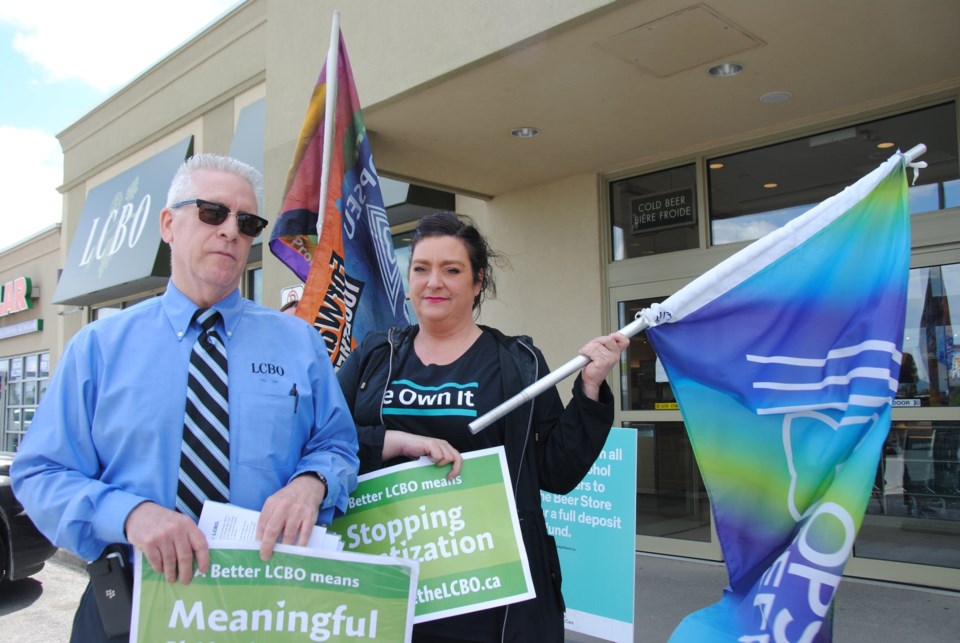Kevin Duggan considers himself lucky: As an LCBO casual employee, he’s been working every day since the May statutory holiday.
But he says LCBO management isn’t so kind to many of his colleagues – and that’s why he’s joined in a province-wide information picket at the LCBO on Barrie’s Bayfield Street Wednesday.
“It’s about treating people fairly. It’s very concerning. You can go to one store and maybe work 20 to 25 hours in a week and then you get transferred on a whim, with two to three weeks’ notice, and get less hours than you were previously. How do people pay their bills?” Duggan, who serves as the local OPSEU’s liquor board employees division steward, said.
The union is in negotiations with the province; the next bargaining table date is June 5.
Issues on the table include not just casual workers’ hours, but also job security and privatization.
“We’re doing information pickets across the province to increase public awareness that we’re in negotiations,” said OPSEU mobilizer Mellisa Jackson.
“A better LCBO would provide meaningful hours for casual workers and permanent jobs when there is work to be done,” she said.
Duggan and Jackson handed out information about why Ontario needs the LCBO, as the threat of privatizing the sale of alcohol.
“Why would Ontarians spend their money buying alcohol and line the pockets of privatized CEOs, instead of seeing their money go directly back into social programs, roads and hospitals?” said Duggan.
The union literature noted the sale of alcohol is approximately $2.4 billion each year, which is then reinvested in the province. The LCBO also creates decent-paying jobs and privatizing liquor sales would wipe out those jobs, the union says.
“I’ve been there 11 years and I’m still a casual (employee). We get benefits, but they’re reduced benefits,” said Duggan, who enjoys his job at the Angus LCBO.
“The way it works is it could be another three or four years before I become full-time, if that ever happens.
“I’m OK,” he said of his employment, stressing he is one of the luckier ones as he is offered the hours he needs to make ends meet.
For others, however, they can get shifts from two to five hours and those shifts can be few and far between.
“For many, it’s a race to the bottom out of the middle class,” Duggan said.



